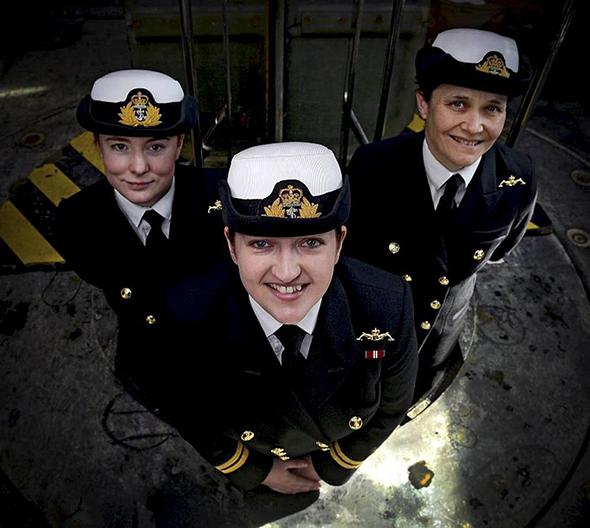Another major country is moving toward equality between men and women in the military. But it won’t be a policy of equal representation. It will be a policy of equal opportunity.
It’s important to understand the difference. Equal opportunity doesn’t guarantee equal outcomes. If you insist on equal outcomes, you’ll have to lower standards so that women can pass them. That has been a major argument against opening physically strenuous jobs to women. To answer that argument, you have to acknowledge that unequal representation is a tolerable result. What’s intolerable is excluding all women just because some, or most, can’t hack it.
Last year, the United States lifted its ban on women in combat. Now the United Kingdom is following suit. On Monday, the U.K. defense ministry reported that three women had passed tests to serve on submarines. Yesterday the British defense secretary, Philip Hammond, announced a broader review that will, in all likelihood, finally end the country’s exclusion of women from the infantry.
Defenders of the British combat ban insist that “clearing an enemy position with bullet and bayonet should remain a man’s job.” It’s “not for women,” they say. As evidence, they point to differences between the average man and the average woman. “Facing and killing a large and aggressive male enemy soldier—if necessary in hand to hand combat—requires a certain ferocity, aggression and killer instinct that is more characteristic of men than women,” says a British colonel. “The politically correct view that men and women are the same and equally capable of every human activity is a dangerous notion when applied to close infantry combat.”
The premise of this argument is true. In several respects, men and women aren’t equally capable. Some traits and abilities relevant to infantry service are, as the colonel says, more characteristic of men. And it isn’t only men who make this point. Judith Webb, a former major in the British Army, says the combat ban should continue because women “don’t have the same upper-body strength.”
The answer to this argument isn’t that men and women are entirely equal. They aren’t. The answer is that inequality of averages doesn’t justify categorical exclusions. Four years ago, after reviewing the available evidence, the U.K. defense ministry acknowledged that “some women would be able to meet the standard required of personnel performing in close combat roles, both physically and psychologically.” That’s the principle on which the ministry is now acting.
The combat ban’s most prominent female defender, Maj. Webb, concedes that the “occasional woman” might meet the standards. But she worries, according to the BBC, that if some women pass the tests, this will “lead to calls for more women to follow—which could result in standards being lowered to promote equality.”
That’s the argument Hammond addressed in his remarks yesterday. He conceded that he didn’t suppose “there are thousands of women desperate to join the combat arms.” He added:
I was with some engineers who were about to go out on an IED patrol in Afghanistan yesterday. They were having to carry 63 kilos each in essentially a combat situation. So we won’t compromise on the fitness that we require for people to be able to keep themselves safe and do their job effectively. That will obviously mean that some roles will have limited numbers of women who are able to meet those criteria. But it’s a question of getting away from the principle of gender. Let’s make it fitness or something else, but not gender.
I can’t say it better than that. Yes, women are less likely to want these jobs. Yes, they’re less likely to be fit for them. But the test should still be fitness, not sex. And yes, as part of that logic, we accept inequality of outcome. “I don’t think it is so much about the number of women who will want to go in, or will be able to meet the fitness test,” said Hammond. “It is about the signal we send that all branches of the military are open regardless of gender.”
Equal representation is a worthy goal. It spurs us to identify and weed out discrimination. But there’s no guarantee that equal opportunity will lead, statistically, to equal outcomes. In the case of women in combat, it won’t.
